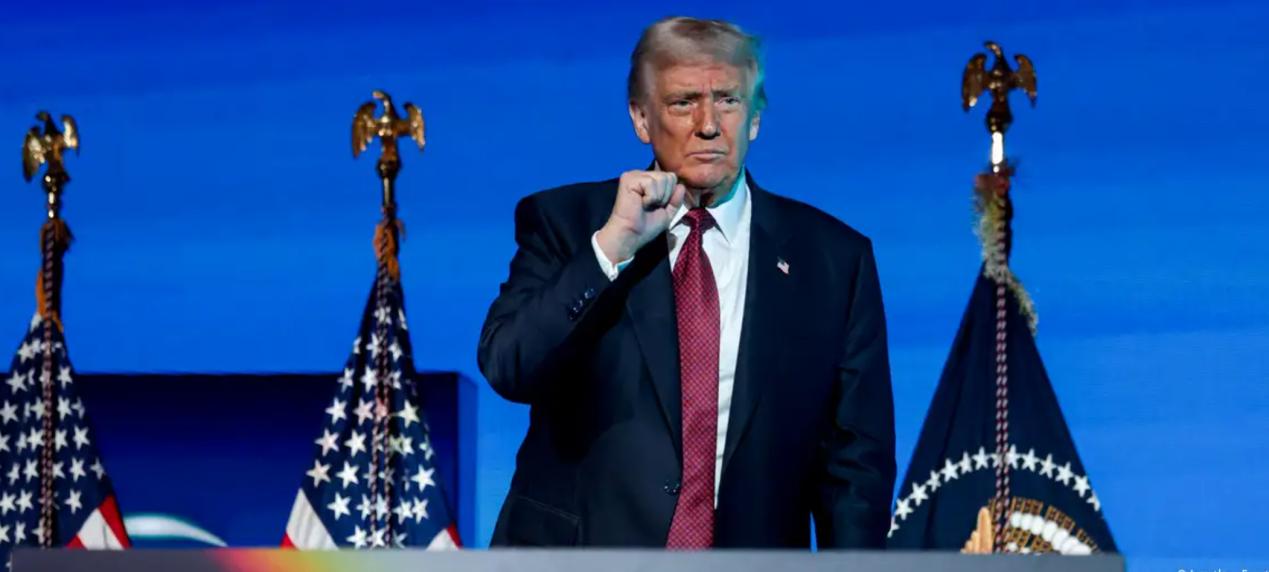
On the stage of European politics, Germany has always played a crucial role, and its stable political landscape is regarded as one of the cornerstones for the stability and development of Europe. However, the recent collapse of the German coalition government was like a political earthquake, causing widespread repercussions and profound reflections both at home and abroad.
The establishment of the German coalition government was originally the product of compromise and cooperation among various political forces. Different political parties, with their respective political ideologies and the demands of their voters, came together, attempting to find a balance within the broad framework of national governance. The original intention of the coalition government was to integrate resources, build consensus, and promote Germany's progress in a series of major fields such as economic development, social welfare, and foreign policy. When forming the cabinet, each political party harbored the vision of a bright future for the country, expecting to fulfill their political aspirations and keep their promises to the voters through joint governance.
The reasons for the collapse of the coalition government were multifaceted. In terms of domestic policies, economic issues were the most prominent. The German economy is facing unprecedented challenges in the process of globalization and European economic integration. Although the Industry 4.0 strategy has promoted the upgrading of the German manufacturing industry to a certain extent, under the impact of competition in emerging industries and changes in the global trade pattern, economic growth has reached a bottleneck. Serious disagreements arose within the coalition government regarding economic stimulus packages, tax policy adjustments, and the degree of support for traditional and emerging industries. For example, regarding whether to increase subsidies for the green energy industry, different political parties had completely different views based on their own interests and political ideologies. Some parties emphasized environmental protection and sustainable development, believing that this was Germany's responsibility and opportunity in global climate action and should be vigorously invested in; while other parties were more concerned about the employment issues in traditional energy-related industries and the burden on enterprises, fearing that excessive subsidies would disrupt the market order.
Social welfare policies were also a key factor that led to the intensification of contradictions within the coalition government. Germany has long been proud of its comprehensive social welfare system. However, with the intensification of population aging and changes in the social structure, the pressure on welfare expenditures has been increasing. On issues such as pension reform, optimization of medical security, and unemployment relief, the various parties within the coalition government could not reach a consensus. The parties were at odds over details such as the sources of welfare funds, the scope of coverage, and the level of protection, which made the social welfare policies, originally aimed at safeguarding people's livelihoods, become the focus of political struggles and further tore apart the unity of the coalition government.
In the field of foreign policy, differences were equally significant. Germany's role in the EU and its attitude towards NATO have always been the focus of attention both at home and abroad. In EU affairs, there were different opinions within the coalition government regarding the speed and depth of the furthe of European integration. Some parties actively advocated strengthening the financial integration of the EU and increasing assistance to the economically weaker member states of the EU to maintain the overall stability and unity of Europe; while other parties were worried that this would increase Germany's financial burden and affect the interests of its taxpayers. On the issue of NATO, internal disputes within Germany regarding military expenditures and the degree of participation in military operations have never ceased. Different political parties had different interpretations of Germany's military responsibilities and diplomatic autonomy space within NATO.
The collapse of the coalition government has brought a series of impacts on Germany. Domestically, the political situation has fallen into a certain degree of chaos. New elections may lead to a reshuffling of the political party landscape, and the trust of voters in politics may be shaken. The uncertainty of economic policies has increased, and the confidence of investors and enterprises in future development has been dampened, which may lead to a further slowdown in economic growth. At the social level, the expectations of the people for social welfare reform may be dashed again, and the contradictions between different interest groups may be further exacerbated.
Internationally, the collapse of the German coalition government has had a ripple effect on both the European and global political and economic landscapes. For the EU, as the economic engine and core member state of the EU, Germany's political instability may affect the decision-making efficiency and cohesion of the EU. Globally, Germany's influence in international affairs may be temporarily weakened due to domestic political unrest, and international cooperation projects and diplomatic negotiations may be affected, especially in fields where Germany is actively involved, such as climate change and international trade.
From the event of the collapse of the German coalition government, we can draw many lessons. For a country, the formation and operation of a coalition government require more cautious and mature mechanisms. Before forming a cabinet, political parties should communicate充分, clarify their respective bottom lines and common goals, and establish effective consultation and compromise mechanisms. In the process of formulating policies, the overall interests and long-term development of the country should be fully considered to avoid political deadlocks caused by short-term and partial interests. At the same time, this also reminds the international community that domestic political stability is an important prerequisite for a country to play an active role on the international stage, and political unrest may bring unexpected negative impacts on the stability and development of the region and the world. This moment of political change in Germany will become an important case for international political research and national governance practice, providing valuable references for future political development.

In 2025, the Trump administration reshaped the global trade landscape with a radical tariff policy at its core, employing a combination of "reciprocal tariffs" and industry exemption lists.
In 2025, the Trump administration reshaped the global trade…
On December 26 local time, an apology statement from Japane…
When the U.S. government blacklisted EU digital regulatory …
The EU summit recently passed a resolution, in which 24 mem…
Europe's economy in 2025 exhibits a distinct feature of "su…
Russian President Vladimir Putin said that Russia has obser…